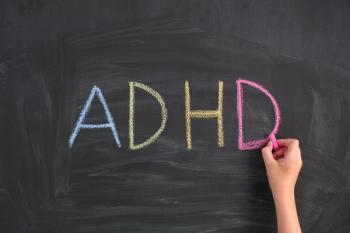
How Sesame Street is helping pediatricians tackle the children's mental health crisis
"Elmo's Mindfulness Spectacular" is just one of the new offerings Sesame Workshop will be presenting to address the national Children's Mental Health Crisis declared by the American Academy of Pediatrics in 2021.
Edited for clarity
Lois Levine
María del Rocío Galarza thanks so much for joining us today from the Sesame Street gang. Can you introduce yourself fully and tell us what you do at Sesame Street?
María del Rocío Galarza
Yes, I am the VP of social impact here, and I help create the content for our special initiatives.
LL
Wonderful. So I know that Sesame Street recently started a mental health program or series of programs: tell us what the impetus for that was and how that all came together.
MG
Well, we realized that there is a mental health crisis and many organizations have actually come up and stated that, including the American Academy of Pediatrics, and we also realized that young children sometimes are left out from these discussions related to mental health. And we wanted to make sure that people were aware that when it comes to mental health, or emotional well-being, it does start really early, from the beginning. And we wanted to really highlight what parents and providers could do to help young children establish those skill sets that could help them with their emotional well-being.
LL
That's a wonderful initiative. Tell us how long the program will be going on and what age groups you are targeting.
MG
It is a multiyear program. So this is going to be going on for a long time. And we're starting with the youngest, of course, with our target age, preschool, and really using the power of our Sesame Street characters to convey some important messaging. But yes, it is multi-years. So you should come and visit us as we go along, we're going to keep launching new materials, letting everyone know, because it's a company-wide initiative, that means that it is all of us and you will see it in books, you will see it in podcasts, you will see it internationally as well, in different initiatives that will complement this emotional well-being effort.
LL
Tell us a little bit about how pediatric health care providers might be able to use these programs. And if we can get a little bit into the specifics of exactly what the programs discuss what the content will be.
MG
Well, let's let's start with where they are. Of course, we're all over. As I mentioned, there's a lot of different sets of materials that are coming from the company. But one set of materials that you can start using right away is the content that is in
LL
And where was the content sourced from: did you go to pediatric health care providers or psychologists, psychiatrists?
MG
We have a group of experts that have been guiding us throughout the development of these resources and the development of the resources across the board. Yes, and they include psychologists, they include pediatricians, they also include teachers and other providers and helpers, that are really creating that contact between the child, the family, and also other resources. And this first push really, in terms of content is to help us really look for all of those helpers that we have around from all of those caring adults. And it's almost making them aware of their power. We have a video that is a song. And it's all about those grownups that care of take care of children and all the wonderful things that they do to take care of those children. It is those daily moments, those very simple moments that can make a big, big difference when it comes to the emotional well-being of young kids.
LL
It's wonderful. This mental health crisis was actually announced in 2021. It's been going on for 2 years. So it's so terrific to see more and more organizations getting involved in stepping up, you know, to take care of these needs. Thank you so much for joining us. I really appreciate it.
MG
Thank you. Thank you for having us.
Newsletter
Access practical, evidence-based guidance to support better care for our youngest patients. Join our email list for the latest clinical updates.






